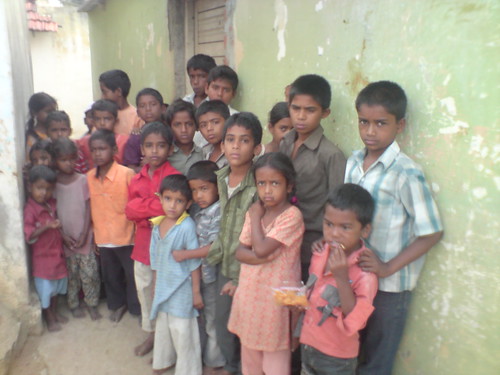Govt urged to pass SC/ST (Prevention of Atrocities) Amendment Bill 2014 in the current session
By TCN News,
New Delhi: Urging the Prime Minister Narendra Modi to keep his pre-poll promise to the SC/ST communities, the National Coalition for Strengthening SCs & STs (Prevention of Atrocities) Act (NCSPA) has demanded the government to pass the pending Scheduled Caste and the Scheduled Tribes (Prevention of Atrocities) Amendment Bill 2014 in the current session of the Parliament.
The Parliamentary Standing Committee on the Social Justice And Empowerment (2014 -15) on the Scheduled Castes and the Scheduled Tribes (Prevention Of Atrocities) Amendment Bill, 2014 had submitted its report to both houses of the Parliament in December 2014 itself.

For representation purpose (TCN file photo)
Among the major recommendations of the Committee are: setting up of special courts for speedy trials; protection of and information to the victims and witness; setting up of special courts for women with a women judge and woman public prosecutors, preferably belonging to SC/ST community among others.
“With the amendments having been examined from the broad perspective of the many stakeholders who participated in the Committee’s study, it is high time the Government legislates the Act. The legislation is long overdue to the millions of SCs/STs facing persistent discrimination and serious crimes in the country,” said Dr VA Ramesh Nathan, convener, NCSPA.
PS Krishnan, former secretary to the government of India and adviser, NCSPA, added, “Modi should keep his pre-election promises to the SC/ST communities and enact the legislation at the earliest.”
Some of the proposed amendments for which the Committee has given its nod are:
** The committee strongly feels that the amendment on the role of courts is necessary as it specifies the roles and powers of courts to exclusively try offences falling under the PoA Act with the specific objective of speedy and expeditious disposal of cases. So far, under the Scheduled Castes and The Scheduled Tribes (Prevention of Atrocities) Act 1989, a session court at the district level is deemed a Special Court to provide speedy trials for offences.
** A Special Public Prosecutor is appointed to conduct cases in this court. The Bill replaces this provision and instead specifies that an Exclusive Special Court must be established at the district level to try offences under the Bill, and cases are disposed off within two months. Appeals of these courts shall lie with the High Court, and must be disposed off within three months. A Public Prosecutor and an Exclusive Public Prosecutor shall be appointed for every Special Court and Exclusive Special Court respectively.
** As regards to new offences added under the Bill, the Committee is of the firm view that the amendment to include new offences in the Bill will not only address the major problem of non-registration of cases but will also limit the scope of misinterpretation of the sections either by the general public or the enforcement agencies. New offences include: garlanding with footwear; compelling to dispose or carry human or animal carcasses, or manual scavenging; abusing SCs or STs by caste name in public; attempting to promote feelings of ill-will against SCs/STs or disrespecting any deceased person held in high esteem, and imposing or threatening a social or economic boycott.
** The Committee is in full agreement with the proposed amendment on the role of public servants. The Act specifies that a non-SC or ST public servant who neglects his duties relating to SCs or STs shall be punishable with imprisonment for a term of six months to one year. The Bill specifies these duties, including registering a complaint or FIR, reading out information given orally, before taking the signature of the informant and giving a copy of this information to the informant, etc.
** Assaulting or sexually exploiting an SC or ST woman is an offence under the Act. Seriously concerned about rising crimes against SC/ST women, the Committee is of the firm view that this vital issue can be addressed by setting up of special courts for women victims with women judges and women public prosecutors preferably belonging to the SC/ST community.
** Since many essential rights and entitlements are not available to the victims and witnesses under the present Act, the Bill adds a chapter on the rights of victims and witness that says it shall be the duty of the state to make arrangements for the protection of victims, their dependents and witnesses. The state government shall specify a scheme to ensure the implementation of rights of victims and witnesses.
** While agreeing with the amendment, the Committee said it will not only provide protection and information to the victims and witnesses but also give them a chance to participate in proceedings through assistance from NGOs and social workers, the Committee concurred with the amendment proposed.
